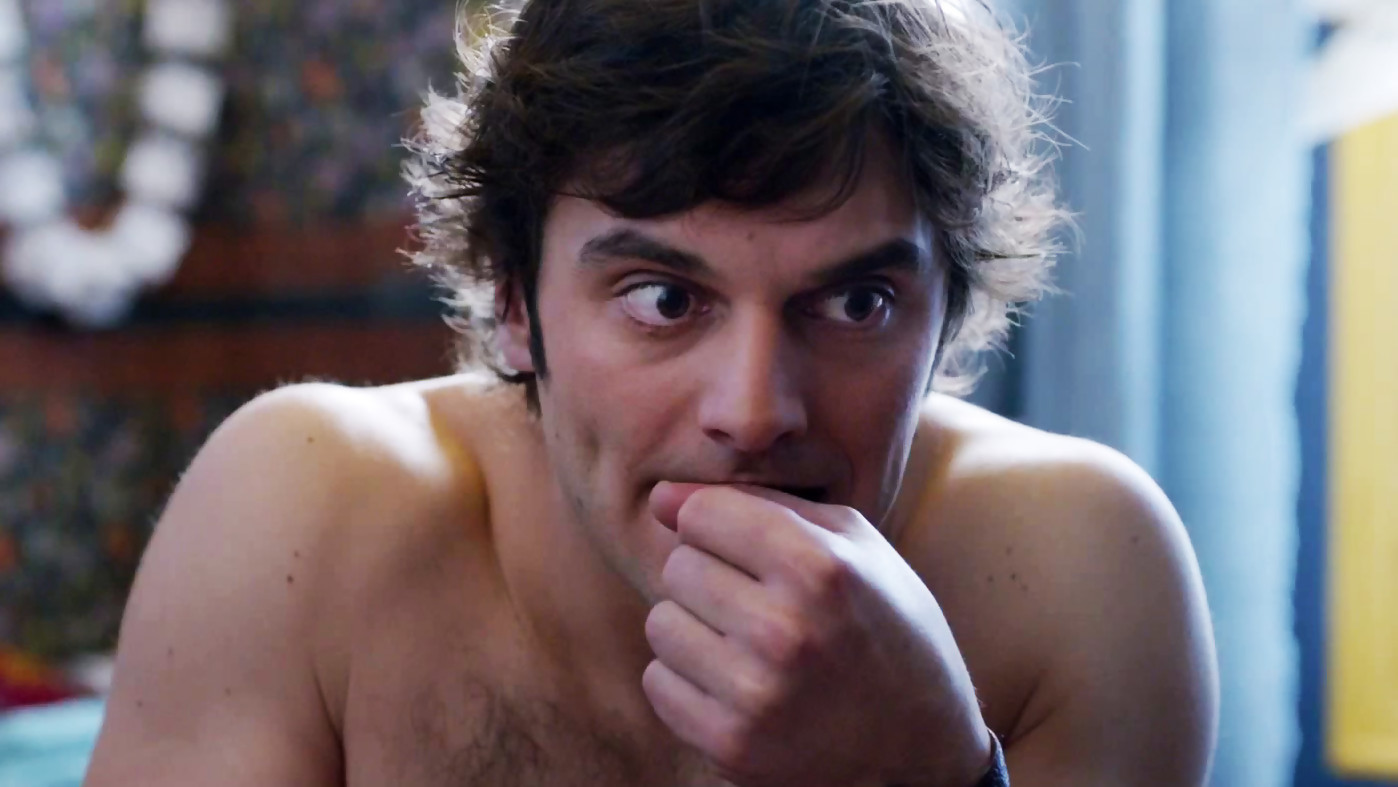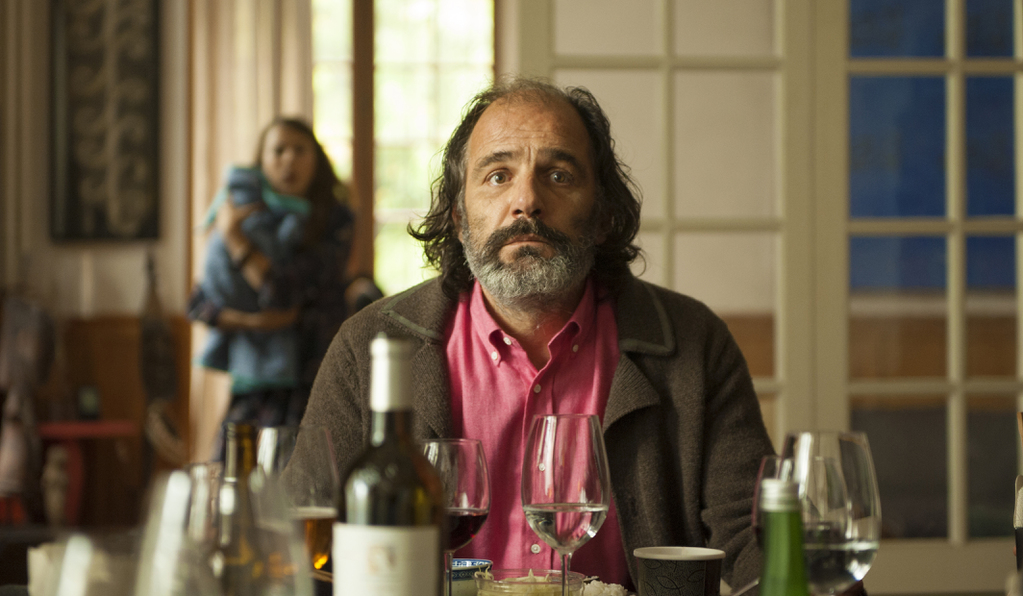My name is Jeremie. I’m 34. And last night, for the first time in my life, I kissed a girl.” So enunciates the protagonist of Noémie Saglio and Maxime Govare’s debut film, I Kissed A Girl (Tout Premiere Fois) as he flees, butt-naked, from the scene of his proverbial crime against homosexuality.
This past Monday, I Kissed A Girl made its West Coast premiere and closed out Hollywood’s 19th Annual COLCOA French Film Festival. It held a distinction as being the only feature at the festival, and one of the only comedies internationally, to ground itself in the tribulations of an engaged same sex couple. However, one half of the couple has suddenly discovered that he may not be as homosexual as he’d always believed.
The film spirals into a somewhat specious romantic comedy whose only real variance lies in its premise and a few golden moments that a queer audience would no doubt empathize with.
When successful, handsome, and charmingly bumbling Jeremie (Pio Marmaï) wakes up next to a gorgeous Swede named Adna (Adriana Graziel), both his facial expression and his voice-over narration inform us that his drunken screw has royally screwed him over. As it turns out, Jeremie has been, up until this point, exclusively with men, and as he rushes home and scrambles to hop into the shower, his equally handsome, debonair doctor fiancé and partner of ten years, Antoine (Lannick Gautry) joins him, oblivious to his partner’s infidelity.

Of course, Jeremie can’t just brush off his one-night stand. Though a series of several awkward sexual encounters, including blowing off Antoine in order to receive a lap-dance in a strip club (his boorish friend Charles’ idea in order to ‘test’ if he’s actually been straight his entire life), and being impotent for the (allegedly) first time in his life, it is clear that Adna has perturbed Jeremie’s security in both his relationship and his sexuality.
What follows is a prettily-shot, hiply soundtracked meander through Jeremie’s attempts to lead a double life — telling Adna that Antoine is his mentally unstable half-brother that he has to take care of, while making excuses for his flagging interest in Antoine and their wedding preparations. All in all, it’s any other formulaic romantic comedy revolving around a love triangle, and though Jeremie is being unfaithful to the highest degree, Marmaï plays him with such confusion and self-deprecation, it’s difficult to condemn him completely.
While Girl could have been an exploration of sexuality and the social binaries we rely on to categorize, quantify, and feel more comfortable with each other, it never truly delves into Jeremie’s awakening after his initial internet search about “queer’s first time with a girl.”
In this montage, we are dealt lines from ignorant online forums, such as the ever-present “bisexuality is just a cop-out for closeted gays,” which Jeremie then internalizes, and repeats to Charles.
The directors Noémie Saglio and Maxime Govare never problematize or elaborate upon that statement as a baseless, negative stereotype of bisexuality. Jeremie never has an epiphany about the fluid nature of sexuality, either — by the end of the movie, he’s declares himself as homosexual, yet in love with Adna, and he’s just as stupefied about that fact as he was when he first clambered out of Adna’s bed. Aside from a brief narration in the opening sequence, we never get an internal look at Jeremie — only an external glance at the choice he makes to eventually pursue Adna.
There are gems that could resonate with queer viewers, such as Jeremie’s obsessively PFLAG-embodying parents, the delightfully neurotic Frédéric Pierrot and Isabelle Candelier, who seem more in love with Antoine than Jeremie ever was, and applaud Jeremie over his bravely alternative lifestyle with an almost fanatic vigor, all the while scoffing at the loving, traditional family Jeremie’s sister has cultivated. In a reversal of the traditional coming out, all of Jeremie’s family members chide him for sullying their idea of him as a strictly homosexual man, painting his choice to sleep with a woman as a betrayal of their family unit.

Overall, Girl isn’t about disproving or even challenging social stereotypes — if anything, it reinforces them.
There are a few delightful quips, and an abundance of attractive actors, but it falls short of pushing intellectual boundaries, or even edging into its main character’s psychology. Its candy-coloring and buoyant soundtrack do make for an upbeat, fun tone, but if you’re looking for a film that makes you, or its characters, think, you may want to look elsewhere, where the leads are not two cis, white gay (or are they?) males, one of which remarks to Adna, “I hope you know how lucky you are. Everyone wants a gay boyfriend, and you’ve got one.”



Aw, this was an extremely nice post. Spending some time and actual effort to generate a really good article… but
what can I say… I put things off a whole lot and
never manage to get nearly anything done.